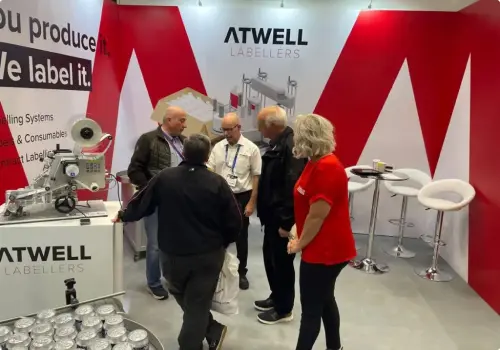3 Reasons to Automate Your Labelling Process
In the fast-paced world of modern manufacturing and packaging, efficiency is the name of the game. One area where efficiency can make a significant impact is the labelling process. If you’re still applying labels manually, it might be time to consider automating this critical task. In this article, we’ll explore three compelling reasons why you should automate your labelling process with labelling machines.
Precision and Consistency
One of the most significant advantages of automating your labelling process is the precision and consistency it brings to the table. Manual labelling, while a traditional method, is prone to human errors. These errors can range from slight misalignment to using the wrong label altogether. Such mistakes can have far-reaching consequences, including product recalls, customer dissatisfaction, and compliance issues.
Labelling machines, on the other hand, are designed to perform with ultimate accuracy. They can apply labels with consistent alignment and pressure, ensuring that each product looks identical. Whether you’re labelling food products, pharmaceuticals, or electronics, precision matters. Automated labelling guarantees that your labels are always where they should be, free from wrinkles, air bubbles, or misalignment.
Speed and Efficiency
Time is money, and nowhere is this truer than in the world of manufacturing. Manual labelling is a time-consuming process, especially when dealing with a high volume of products. Every second spent applying labels by hand adds up, impacting your overall production speed and efficiency.
Labelling machines are built for speed. They can apply labels much faster than any human operator. This accelerated pace not only increases your throughput but also reduces labour costs. With a labelling machine, you can label hundreds, if not thousands, of products per hour, depending on the model and application method. This means faster production cycles, quicker order fulfilment, and a more competitive edge in your industry.
Flexibility and Adaptability
In today’s dynamic manufacturing landscape, adaptability is a valuable trait. Product sizes, shapes, and label designs can change frequently. Manual labelling can be cumbersome and time-consuming when you need to adjust to these changes. For example, different products may require different label sizes, which means ordering, stocking, and manually switching between various label rolls.
Labelling machines offer a high degree of flexibility and adaptability. Many modern machines can accommodate different label sizes and shapes, making it easy to switch between products. Some labelling machines even offer the flexibility to handle various label materials, adhesives, and printing methods. This adaptability streamlines your labelling process, reduces downtime, and enhances your production agility.
Choosing The Right Labelling Machine
To fully realise the benefits of automating your labelling process, it’s crucial to choose the right labelling machine for your specific needs. Consider factors like the volume of products you need to label, the label materials you use, and any unique requirements of your industry. Here are a few common types of labelling machines:
- Fully Automatic Labellers: These machines are ideal for high-volume production lines and can apply labels to various product shapes and sizes.
- Print and Apply Labelling Machines: If you need to print variable data like barcodes or expiration dates, print and apply labellers can handle both printing and application in one step.
- Semi-Automatic Labelling Machines: Suitable for smaller operations, semi-automatic labellers require some manual input but still offer improved efficiency and accuracy compared to entirely manual labelling.
- Front and Back Labelling Machines: These machines are designed to apply labels to the front and back of products simultaneously, perfect for items like bottles or containers.
For more information on automating your label process and to discuss your unique requirements, speak with our team of specialists today.
Can we help you?
Technical Helpline
Contact by Telephone:
+44 (0)1444 237 804

